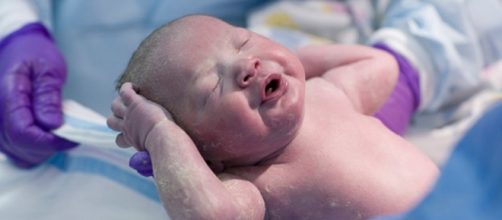A baby in Oregon tested positive for Group B Strepococcus (Group B Strep). Doctors believe the infection may have resulted from the mother's decision to have her Placenta made into pills which she later consumed.
Eating your placenta: a new trend
The concept of eating one's placenta is not necessarily new; however after big name celebrity endorsements, it has become increasingly popular. The placenta is basically a baby's power pack while it is in the womb. It provides the fetus with necessary nutrients and is especially rich in vitamin B12 and iron.
When a women delivers her baby, she also delivers the placenta. In most hospitals in the United States, the placenta is treated as a bio-hazard and is promptly discarded. In recent years however, more and more women are choosing to keep their placenta and have it made into a pill or powder which can be consumed.
There are a few claims about the health benefits of consuming the placenta but very few of these have been backed up by any scientific research. Many women chose to eat their placenta because of the iron and other vital nutrients it contains. Others have made this decision based on claims that it can decrease the chances of developing postpartum depression and increase breast milk production.
An Oregon baby gets sick after mother consumes placenta
A baby in Oregon recently presented with Group B Strepococcus, known most commonly as Group B Strep. Group B strep is treatable but it is especially dangerous in newborn babies as their immune systems are weaker. In babies, this infection can cause pneumonia, meningitis, and sepsis, a potentially fatal infection of the bloodstream. Newborn babies typically catch Group B Strep from their mothers during the birthing process. The baby was treated for the infection only to be admitted to a different hospital five days later and diagnosed with Group B Strep once again.
Reinfections are extremely rare with this disease, leading physicians to believe that the mother was somehow passing the infection onto the infant.
Dr. Genevieve Buser, a pediatrician and infectious disease specialist took interest in the case and decided to have the mother's breast milk sent off to a lab for testing. When the test came back negative, Buser began looking for another answer. It was then that she discovered that the mother had saved her placenta and had it made into placenta pills which she was taking on a regular basis. The pills were sent to the Centers for Disease Control and Prevention (CDC) along with a sample of the baby's blood that had been taken to diagnose the Group B Strep in the first place. The placenta tested positive for the disease and the two samples were nearly identical.
Based on this case and others like it, the CDC advises against the consumption of the placenta.


